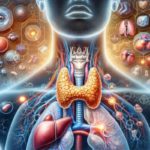Identifying and Managing Low Testosterone Levels in Men for Improved Health
Recognising Key Symptoms of Low Testosterone in Men

Low testosterone, commonly known as low T, presents itself through a variety of symptoms that can severely impact men’s daily lives. One of the most notable signs is chronic fatigue, where individuals often experience profound tiredness that persists even after adequate rest. This debilitating exhaustion can hamper productivity and affect daily tasks significantly. Another prevalent symptom is a decreased libido, as men may notice a substantial drop in sexual desire, which can create tension in intimate relationships and negatively influence self-esteem. Additionally, mood alterations such as increased irritability, feelings of depression, or anxiety often accompany low testosterone levels, collectively diminishing overall quality of life.
Identifying these symptoms at an early stage is essential, as they may indicate underlying health concerns that warrant immediate attention. Men experiencing these symptoms should not dismiss them lightly but instead seek professional medical advice. By addressing low testosterone levels promptly and effectively, individuals can manage their symptoms better and significantly enhance their overall well-being.
Effective Strategies for Early Detection of Low Testosterone Symptoms
Early identification of low testosterone symptoms is crucial in averting potential health complications. Men should remain vigilant and observant about any physical or emotional changes they might experience. Key early indicators to monitor include:
- Persistent fatigue and dwindling energy levels
- Decreased sexual interest or libido
- Difficulty concentrating or experiencing memory issues
- Increased irritability or noticeable mood fluctuations
- Reduction in muscle mass and overall strength
- Increased body fat, especially around the waist
- Sleep disturbances, including insomnia or sleep apnoea
- Lowered confidence or enduring feelings of sadness
By recognising these warning signs early, men can initiate timely interventions that lead to improved long-term health outcomes. Consulting healthcare providers upon noticing these changes can facilitate the exploration of possible causes and appropriate solutions.
Understanding the Daily Life Impact of Low Testosterone Levels
The repercussions of low testosterone can permeate various aspects of a man's life, causing considerable disruptions to daily activities and personal relationships. Energy levels often diminish, rendering even the simplest of tasks feel burdensome. This pervasive fatigue can adversely affect work performance and curtail participation in leisure activities, ultimately leading to a decline in overall life satisfaction. Furthermore, a waning libido can introduce strain into intimate relationships, leaving both partners feeling inadequate or frustrated.
Men grappling with low testosterone may also observe a general decline in their overall well-being. Mood swings can complicate social interactions, frequently resulting in withdrawal from friends and family. This growing sense of isolation can exacerbate the emotional symptoms linked to low testosterone, creating a challenging cycle that can be hard to break. Recognising the significant effects of low testosterone on daily life is vital for men, motivating them to seek help and improve their quality of life.
Why Regular Testing for Testosterone Levels is Essential for Health

Regular testing for testosterone levels is crucial for the early identification of low testosterone, enabling timely diagnosis and treatment. Many men may undervalue the importance of monitoring their hormone levels; however, this proactive approach can significantly mitigate long-term health complications associated with low testosterone. Healthcare professionals frequently advise that men, particularly those over 40 or with risk factors like obesity or chronic health conditions, undergo regular testosterone screenings.
Men should engage with their GP to establish an appropriate testing schedule, typically involving blood tests conducted in the morning when testosterone levels are naturally at their peak. Continuous assessments are particularly important for those receiving treatment, ensuring that testosterone levels remain within the desired range. This ongoing monitoring allows healthcare providers to adjust treatment plans as necessary, greatly enhancing the management of low testosterone symptoms.
Comprehensive Treatment Solutions for Low Testosterone Symptoms
A variety of treatment options are available to effectively manage low testosterone symptoms, customised to meet individual needs and preferences. Hormone replacement therapy (HRT) is one of the most prevalent methods, involving the administration of testosterone through injections, patches, or gels. This therapy can significantly elevate testosterone levels, alleviating symptoms and enhancing quality of life. However, it is essential to discuss potential benefits and risks with a healthcare provider to determine the most suitable course of action.
In conjunction with HRT, lifestyle modifications can play an integral role in managing low testosterone. Adopting a balanced diet rich in essential nutrients, participating in regular physical activity, and implementing effective stress management techniques can all positively affect natural testosterone production. Men should collaborate closely with their doctors to explore these options and develop a comprehensive, personalised treatment plan that addresses both hormonal and lifestyle needs.
Insights from Experts on Low Testosterone Symptoms and Their Management
What Contributes to Low Testosterone Levels in Men?

Low testosterone levels can arise from various factors, including age, obesity, and numerous medical conditions. As men age, testosterone levels naturally decline, which increases the risk of low T. For instance, older men may find their hormone levels drop markedly, resulting in symptoms associated with low testosterone. Additionally, obesity plays a significant role, as excess body fat, particularly around the abdomen, can impede the body’s ability to produce testosterone effectively.
Specific medical conditions, such as diabetes, chronic kidney disease, or hormonal disorders, can also contribute to diminished testosterone levels. Understanding these potential causes is crucial for both prevention and management. Real-life examples, such as men in their 50s and 60s experiencing symptoms due to age-related declines or younger individuals facing challenges linked to obesity, highlight the necessity for awareness and proactive health measures to mitigate the risks associated with low testosterone.
How Dietary Choices Can Affect Testosterone Levels
Nutrition significantly impacts testosterone regulation, with certain foods positively influencing hormonal health. Nutrient-dense foods rich in zinc, vitamin D, and healthy fats can assist in maintaining optimal testosterone levels. For instance, items like oysters, nuts, seeds, and avocados are renowned for supporting hormone production and regulation. A diet low in processed foods and high in whole, natural ingredients can foster better hormonal balance.
Experts advocate that men focus on incorporating these beneficial foods into their daily meals while reducing their intake of sugars and refined carbohydrates, which can adversely affect testosterone levels. Meal planning that emphasises whole foods, vegetables, lean proteins, and healthy fats can significantly enhance a man’s ability to maintain optimal testosterone levels and alleviate symptoms related to low T.
What Lifestyle Changes Can Help Manage Low Testosterone Symptoms Effectively?
Implementing positive lifestyle changes can greatly influence the effective management of low testosterone symptoms. Regular exercise stands out as one of the most effective strategies, as physical activity not only enhances overall health but also stimulates testosterone production. Men should strive to incorporate a blend of strength training and cardiovascular exercises to maximise these benefits. Simple adjustments, such as integrating walking or cycling into everyday routines, can yield substantial improvements in overall health.
In addition to physical activity, effective stress management is essential. Chronic stress can elevate cortisol levels, which negatively impacts testosterone production. Techniques such as mindfulness, meditation, yoga, and deep breathing exercises can assist in lowering stress levels, promoting better hormonal balance. By embracing these lifestyle modifications, men can significantly enhance their symptoms and overall well-being.
How Sleep Quality Influences Testosterone Levels
Quality sleep is paramount for sustaining healthy testosterone production. Research indicates that sleep deprivation can lead to reduced testosterone levels, making it crucial for men to prioritise their sleep hygiene. Poor sleep quality can disrupt the body's natural hormonal rhythms, resulting in fatigue, mood disturbances, and diminished libido—all common symptoms related to low testosterone.
To enhance sleep quality, men should cultivate habits such as maintaining a consistent sleep schedule, establishing a calming bedtime routine, and minimising screen exposure before sleep. Furthermore, creating a comfortable sleep environment, free from distractions and conducive to rest, can further improve sleep quality. By prioritising sleep, men can support their hormonal health and enhance their testosterone levels.
What Role Do Supplements Play in Supporting Testosterone Levels?
Supplements can be beneficial in managing low testosterone symptoms, although their safety and effectiveness should be assessed carefully. Vitamin D and zinc are two supplements frequently highlighted for their potential to support testosterone levels. A deficiency in vitamin D has been linked to low testosterone, and supplementation can aid in restoring optimal levels. Likewise, zinc is a vital mineral for hormone production, and ensuring sufficient intake can positively influence testosterone levels.
However, men should consult healthcare professionals before commencing any supplementation regimen. Not all supplements are created equal, and possible interactions with medications or other health conditions must be considered. An expert's insight can guide men towards safe and effective supplementation strategies as part of their comprehensive approach to managing low testosterone symptoms.
Understanding Medical Diagnosis and Testing Procedures in the UK
Where Can Men Access Testing for Low Testosterone Levels?
In the UK, men wishing to be tested for low testosterone can do so through their GP or private clinics. It is critical to consult a healthcare professional who can evaluate symptoms, review medical history, and recommend suitable diagnostic tests. Accessing testing via the NHS is often straightforward, as GPs are able to arrange blood tests to measure hormone levels.
For those seeking expedited services, private clinics offer testosterone testing with potentially shorter waiting periods. Understanding the intricacies of each option can empower men to make informed decisions regarding where to seek testing. Awareness of available pathways to diagnosis is crucial for men who suspect they may be experiencing low testosterone.
What Diagnostic Tests Are Utilised to Identify Low Testosterone?
The primary method for diagnosing low testosterone involves blood tests. These tests evaluate the total testosterone levels in the bloodstream, generally requiring samples to be collected in the morning when testosterone levels peak. Healthcare providers typically conduct multiple tests to confirm low levels, as testosterone can fluctuate due to various factors.
Men should prepare for their diagnostic process by recognising that a comprehensive assessment may include tests for free testosterone, sex hormone-binding globulin (SHBG), and other related hormones. This thorough approach contributes to a clearer understanding of a man's hormonal health, ensuring an accurate diagnosis and appropriate treatment.
Why Regular Monitoring of Testosterone Levels is Important
Regular monitoring of testosterone levels is vital, particularly for men undergoing treatment. Effectively managing low testosterone necessitates understanding how well treatments are working and identifying if adjustments are needed. For men on hormone replacement therapy, routine blood tests are essential to ensure that testosterone levels remain within the desired range, thus preventing potential side effects associated with overtreatment.
Men should maintain open communication with their healthcare providers regarding the frequency of monitoring and any symptoms that may arise during treatment. By prioritising regular check-ups, men can sustain optimal testosterone levels and improve their overall health outcomes.
How Can Men Accurately Interpret Their Testosterone Test Results?
Interpreting testosterone test results can be intricate, yet it is essential for accurate diagnosis and treatment planning. Testosterone levels are typically measured in nanograms per decilitre (ng/dL), with normal ranges varying based on age and individual factors. Generally, levels below 300 ng/dL are considered low; however, this threshold may differ among healthcare professionals.
Men should consult their GPs or specialists to comprehensively understand their results. Healthcare professionals can elucidate the implications of testosterone levels, guiding subsequent steps based on individual health profiles. A clear comprehension of test results empowers men to make informed decisions regarding their health and treatment options.
Exploring Available Treatment Options in the UK for Low Testosterone
What Are the Most Common Treatment Modalities for Low Testosterone?
Common treatments for low testosterone encompass hormone replacement therapy, lifestyle changes, and medications. Hormone replacement therapy remains a cornerstone of treatment, offering significant symptom relief and improved quality of life. Various methods, such as injections, gels, or patches, provide tailored approaches that cater to individual preferences and requirements.
Alongside HRT, lifestyle modifications play a crucial role in managing low testosterone. Emphasising a balanced diet, engaging in regular physical activity, and implementing effective stress management strategies can complement medical treatments. This holistic approach ensures that men address both hormonal and lifestyle factors contributing to low testosterone.
Understanding these options empowers men to discuss treatment strategies with their healthcare providers and select a path that aligns with their health goals. Recognising the full spectrum of treatment options is vital for making informed decisions regarding the management of low testosterone.
How Effective Are Hormone Therapies in Treating Low Testosterone?
Hormone replacement therapies can be remarkably effective for managing low testosterone symptoms, with many men experiencing notable improvements in energy levels, sexual function, and overall well-being. Nonetheless, close monitoring is critical to ensure the therapy’s effectiveness while avoiding potential side effects. These side effects may include weight gain, mood changes, and an increased risk of cardiovascular issues, necessitating careful management.
Men considering hormone therapy should engage in comprehensive discussions with their healthcare providers to understand the potential benefits and risks associated with treatment. Customising the approach based on individual health profiles can enhance the effectiveness of hormone therapies, leading to better outcomes for those managing low testosterone.
How Can Men Access Treatment Through the NHS?
In the UK, men can obtain treatment for low testosterone through the NHS, which provides various support and treatment options. Following a consultation with a GP and undergoing necessary assessments, men may be referred to specialists for further evaluation and treatment planning. The NHS offers resources for ongoing monitoring and management, ensuring that men receive appropriate care throughout their treatment journeys.
The accessibility of NHS services means that men may not have to shoulder the full financial burden of managing low testosterone. Engaging with NHS support can facilitate a structured approach to treatment, promoting better health outcomes for those affected by low testosterone.
What Are the Potential Side Effects of Low Testosterone Treatments?
Understanding the potential side effects of low testosterone treatments, particularly hormone therapy, is crucial for making informed decisions. Common side effects can include mood fluctuations, increased body fat, and the risk of sleep apnoea. Additionally, there may be concerns regarding elevated red blood cell counts, which can heighten the risk of cardiovascular issues.
Men undergoing treatment should maintain open lines of communication with their healthcare providers to monitor any adverse effects. Regular check-ups and blood tests will help in effectively managing these potential side effects, ensuring that treatment remains beneficial without compromising overall health.
Research-Backed Insights on Low Testosterone Symptoms in Men
How Does Treatment Enhance Quality of Life Significantly?
Intervention for low testosterone can dramatically improve a man’s quality of life. Many men report enhancements in energy levels, mood, and sexual health following appropriate treatment. Increased vitality frequently translates into greater productivity at work, improved relationships, and a more active lifestyle. These positive changes contribute to a heightened sense of well-being and fulfilment.
Expert analysis supports the view that addressing low testosterone can lead to a substantial reduction in symptoms of depression and anxiety. Men who undergo treatment often experience a renewed sense of confidence, positively impacting various facets of their lives. As testosterone levels normalise, many men rediscover interests and activities they once enjoyed, ultimately enhancing their quality of life.
What Are the Long-Term Health Benefits Associated with Treatment?
The long-term health benefits of treating low testosterone extend beyond immediate symptom relief. Effective treatment can help prevent conditions such as osteoporosis and heart disease, which can occur from untreated low testosterone. Studies indicate that maintaining healthy testosterone levels supports bone density and cardiovascular health, contributing to overall longevity.
Real-world evidence reinforces this concept, with men who commit to treatment reporting fewer health complications and improved overall health outcomes. By prioritising treatment for low testosterone, men can mitigate risks associated with chronic conditions, fostering a healthier lifestyle over time.
What Are the Risks Associated with Untreated Low Testosterone?
Neglecting to address low testosterone can lead to serious health complications, making awareness of these risks essential. Men with untreated low testosterone face an increased likelihood of conditions such as heart disease, diabetes, and decreased bone density. These complications can significantly impact health and quality of life, underscoring the importance of recognising and addressing low testosterone symptoms promptly.
Furthermore, untreated low testosterone can contribute to mental health challenges, including a heightened risk of depression and anxiety. Understanding these risks encourages men to take proactive steps toward their health, highlighting the critical need for awareness and timely intervention regarding low testosterone symptoms.
Accessing Support and Resources in the UK for Low Testosterone Management
Where Can Men Find Support Groups for Low Testosterone?
Support groups in the UK can provide invaluable emotional and practical assistance for men grappling with low testosterone. These groups create a safe environment for sharing experiences, fostering understanding and camaraderie among men facing similar challenges. Numerous local organisations and online forums focus on men’s health and hormone-related issues, creating communities for individuals to connect.
Participating in support groups can help alleviate feelings of isolation whilst offering practical advice on coping strategies, treatment options, and lifestyle changes. Engaging with peers who comprehend the intricacies of living with low testosterone can significantly enhance a man’s emotional well-being.
How Can Online Resources Assist Men with Low Testosterone?
Online resources are invaluable for men navigating low testosterone, offering essential information and support. These platforms can include educational articles, forums, and telehealth services that enable access to healthcare professionals without the necessity for in-person visits. Some valuable online resources consist of:
- NHS website for men’s health information
- Men’s Health Forum UK
- Testosterone Replacement Therapy Support Groups on social media
- Informative blogs and podcasts on men’s hormone health
- Telehealth services for consultations and ongoing support
- Online forums for sharing personal experiences and advice
- Webinars and virtual workshops on health management
- Educational websites focused on low testosterone treatment options
These resources empower men with the knowledge and support necessary to effectively address their health challenges.
How Can Professional Counselling Benefit Men Struggling with Low Testosterone?
Professional counselling services in the UK can provide essential support for men dealing with the emotional ramifications of low testosterone. Many men experience feelings of inadequacy, anxiety, or depression stemming from hormonal imbalances. Professional counselling offers a confidential and supportive setting for discussing these issues and developing coping strategies.
Counsellors can assist men in navigating the psychological challenges associated with low testosterone, enhancing mental health and overall well-being. Engaging with mental health professionals can foster emotional resilience and pave the way for healthier relationships and an improved quality of life.
Frequently Asked Questions About Low Testosterone Management
What are the most prevalent symptoms of low testosterone in men?
The most prevalent symptoms include fatigue, decreased libido, mood alterations, and reduced muscle mass. These manifestations can significantly affect a man’s daily life and overall well-being.
How is low testosterone diagnosed effectively?
Low testosterone is primarily diagnosed through blood tests that measure testosterone levels, usually conducted in the morning when levels are at their highest. Multiple tests may be necessary for an accurate diagnosis.
What treatment options are available for managing low testosterone?
Treatment options encompass hormone replacement therapy, lifestyle modifications, and dietary changes. Consulting a healthcare provider is crucial for determining the most effective course of action.
Can dietary choices influence testosterone levels?
Yes, a balanced diet rich in essential nutrients, such as zinc and vitamin D, can positively affect testosterone levels. Whole foods and healthy fats are particularly beneficial.
How crucial is regular testing for testosterone levels?
Regular testing is vital for monitoring testosterone levels, especially for those undergoing treatment. It ensures that hormone levels remain within the desired range and aids in managing potential side effects.
What lifestyle adjustments can help manage low testosterone symptoms?
Regular exercise, stress management techniques, and maintaining a balanced diet can significantly improve low testosterone symptoms. These lifestyle changes promote overall health and hormonal balance.
What are the potential risks associated with untreated low testosterone?
Untreated low testosterone can lead to severe health issues, including an increased risk of heart disease, osteoporosis, and mental health challenges like depression and anxiety.
How does hormone replacement therapy function in practice?
Hormone replacement therapy involves administering testosterone through injections, patches, or gels to restore hormone levels, alleviating symptoms and enhancing quality of life.
Are there any side effects associated with testosterone treatment?
Yes, potential side effects can include weight gain, mood fluctuations, and sleep disturbances. Regular monitoring is essential to manage these risks effectively.
Where can I find support for low testosterone issues?
Support groups, both in-person and online, can provide valuable emotional and practical support for men dealing with low testosterone. Engaging with these communities can help alleviate feelings of isolation.
Connect with us on Facebook!
This Article Was First Found On https://bloodtest.co.uk
The Article Low Testosterone Symptoms in Men: A UK Overview Was Found On https://limitsofstrategy.com


